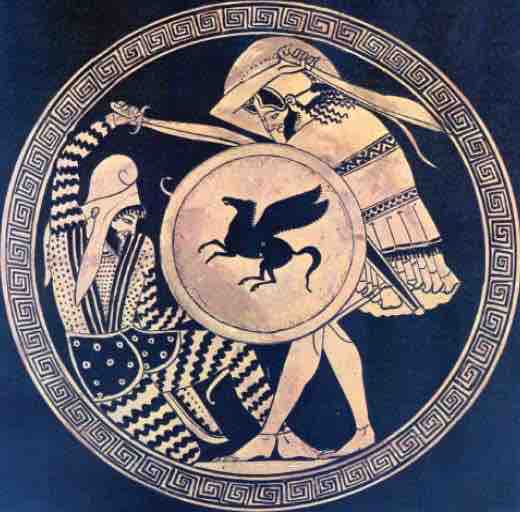State Formation and the Centralization of Power
Today we take it for granted that different societies are governed by different states, but this has not always been the case. Since the late nineteeth century, virtually the entirety of the world's inhabitable land has been parceled up into areas with more or less definite borders claimed by various states. Earlier, quite large land areas had been either unclaimed or uninhabited, or inhabited by nomadic peoples who were not organized as states. In fact, for most of human history, people have lived in stateless societies, characterized by a lack of concentrated authority, and the absence of large inequalities in economic and political power.
The first known states were created in Ancient Egypt, Mesopotamia, India, China, the Americas (e.g., Aztec civilization, Inca civilization). Most agree that the earliest states emerged when agriculture and writing made it possible to centralize power in a durable way. Agriculture allowed communities to settle and also led to class division: some people devoted all their time to food production, while others were freed to specialize in other activities, such as writing or ruling. Thus, states, as an institution, were a social invention. Political sociologists continue to debate the origins of the state and the processes of state formation.
Competing Theories of State Formation
Hydraulic Civilization
According to one early theory of state formation, the centralized state was developed to administer large public works systems (such as irrigation systems) and to regulate complex economies. This theory was articulated by German American historian Karl August Wittfogel in his book 1957 Oriental Despotis. Wittfogel argued that most of the earliest states were formed in hydraulic civilizations, by which he meant civilizations where leaders controlled people by controlling the water supply. Often, these civilizations relied on complex irrigation systems that had to be centrally managed. The people, therefore, had good reason to give control to a central state, but in giving up control over the irrigation system, they also gave up control over their own livelihoods and, thus, the central state gained immense control over people in general. Although Wittfogel's theory is well known, it has also been criticized as inaccurate. Modern archaeological and anthropological evidence shows that many early societies were not as centralized, despotic, or unequal as the hydraulic theory would suggest.
Coercion, War, and the State
An alternative theory of state formation focuses on the rise of more modern nation-states and explains their rise by arguing they became necessary for leveraging the resources necessary to fight and defend against wars. Sociologist Charles Tilly is the best known theorist in this tradition. Tilly examined political, social, and technological change in Europe from the Middle Ages to the present and attempted to explain the unprecedented success of the nation-state as the dominant form of state on Earth. In other words, instead of asking (like Wittfogel) where the very first states came from, Tilly asked where the types of states with which we're most familiar came from, and why they became so common.
According to Tilly's theory, military innovation in pre-modern Europe (especially gunpowder and mass armies) made war extremely expensive. As a result, only states with a sufficient amount of capital and a large population could afford to pay for their security and ultimately survive in the hostile environment. Thus, the modern states and its institutions (such as taxes) were created to enable war making.

Ancient Persian and Greek Warriors
States may have formed to help societies organize for war.
Rationalization and Bureaucracy
Yet another theory of state formation focuses on the long, slow, process of rationalization and bureaucratization that began with the invention of writing. The Greeks were the first people known to have explicitly formulated a political philosophy of the state, and to have rationally analyzed political institutions. In Medieval Europe, feudalism furthered the rationalization and formalization of the state. Feudalism was based on the relationship between lord and vassal, which became central to social organization and, indeed to state organization. The Medieval state was organized by Estates, or parliaments in which key social groups negotiated with the king about legal and economic matters. Since then, states have continued to grow more rational and bureaucratic, with expanding executive bureaucracies, such as the extensive cabinet system in the United States. Thus, states have evolved from relatively simple but powerful central powers to complex and highly organized institutions.

The Tigris-Euphrates Watershed in Mesopotamia
In hydraulic civilizations, control over water concentrated power in central despotic states.